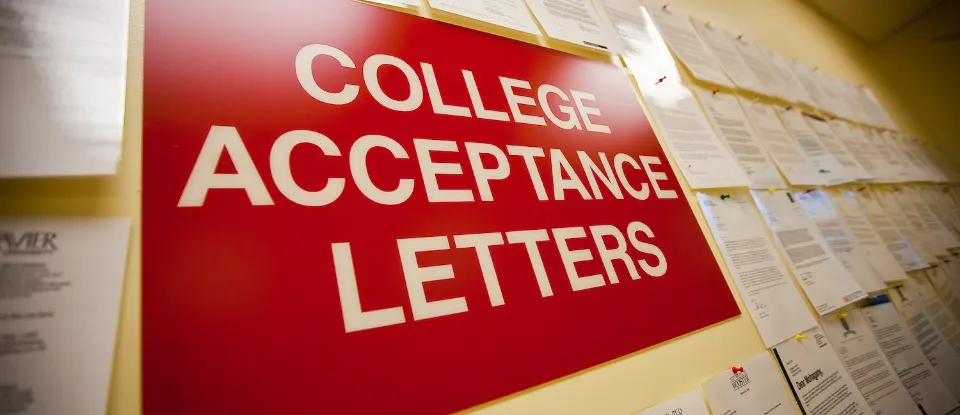
How to Decline a College Acceptance? Step-By-Step Tutorial
o you need help understanding how to decline a college acceptance? Continue reading to find out how to politely decline a college acceptance.
Being accepted to several colleges is fantastic! Narrowing down your options and selecting your future college, however, can occasionally be challenging. After deciding which college you want to attend, it’s crucial to turn down any offers of admission from other institutions.
A prompt, courteous, and concise response is necessary. In the event that you decide to return to that college or university in the future, perhaps to pursue a master’s or doctoral degree, doing this will also assist you in maintaining a good reputation.
Here, we’ll go over the most effective ways to reject a college acceptance or a spot in a university program.
How to Decline a College Acceptance?
Here is a guide for how to decline a college acceptance or university place:
Act Quickly
Don’t keep the college waiting by being tardy and quickly declining your place. Once you have made a decision, it is time to act. Typically, a deadline is set by which you must respond. It is advisable to finish it as soon as you can and beat the deadline.

By giving up your spot, you are essentially giving someone else the chance to study. You’ll be doing someone a huge favor because being put on the waiting list for your top-choice college or university can be excruciating.
Keep It Short and Sweet
Stick to the point and keep it short. You are not required to provide a detailed justification for rejecting the position or for selecting another program or college in its place.
Include all the pertinent details, such as your name, the date, the name of the department, committee, or program leader who wrote you an acceptance letter, as well as a few sentences outlining why you are rejecting the position.
Thank Them for Their Time and Consideration
A thank-you note is almost universally included in formal and polite letters. It is polite to express gratitude to the admissions staff, program coordinator, or college division for the acceptance or the offer of a spot in the program.
This will also reflect favorably on you; in contrast, a sour letter of rejection will draw attention to you for all the wrong reasons. Being kind and appreciative is the right thing to do.
Knowing that your application was carefully examined and taken into account before the college decided to extend an invitation to join their program can be helpful. We should express our gratitude to whoever took the time to do this. Furthermore, should you run into the college again, you’ll be keeping your options open.
Submit the Declination in the Correct Format

Verify whether the college requires a letter in writing, an email, or an online form. Read the acceptance letter carefully before responding, and use the proper writing style. By doing this, you can be sure that the system has properly received and recorded your declination.
How Long Do You Have to Accept Or Decline a College Acceptance?
How long do you have after receiving a college acceptance to accept or reject it? National College Decision Day, which is observed on May 1st in the United States, is typically the last day to accept college offers.
In the United States, high school seniors must choose their colleges and submit their enrollment intentions on National College Decision Day, a day that has gained national recognition.
The college of the student’s choice must be notified of the intention to enroll on this date, and the student must also withdraw any pending applications to other colleges. National College Decision Day is held in order to assist students in making a decision and to provide colleges with a precise estimate of the number of students who will enroll in the upcoming fall semester.
It is crucial to check the specific deadlines for each college you have been accepted to as some may have different deadlines.
The admissions process at some colleges is rolling, which means that as applications come in, they are reviewed and taken into consideration. You might have a shorter window of time to accept or reject their offer of admission if you applied to a college that offers rolling admissions.
Rolling admissions colleges typically notify applicants of their acceptance within 4-6 weeks, continuing to choose students until all openings for the incoming class are filled. Rolling admissions schools typically start accepting applications around September 1 and keep accepting them until the end of the spring semester.
Regardless of the deadline, it’s crucial to carefully consider all of your options and take your time making a decision. When making your choice, you should also take into account aspects like financial aid, campus life, and academic programs.

Declining a College Acceptance Offer by Phone
Be prepared for the colleges you’re rejecting to call you. Some colleges might give you a call to discuss the specifics of your rejection in an effort to enhance their recruitment procedure.
Even though it’s not required, it’s best practice to give a general justification for why you declined their offer.
Explain in a few words why you were drawn to another school more. Mentioning elements like costs, programs offered, or extracurricular activities is appropriate if applicable. This is the time to let them know if you had a bad experience with any part of the hiring procedure.
Even if you’ve already made up your mind to reject a school, always strive to make a good first impression. All communications between colleges and you and your caretakers are kept on file. When speaking with colleagues, keep your cool and be polite because you never know what the future will bring.
What If a College Calls You?
Though it’s uncommon, colleges occasionally decide to call students who turned down their acceptance offer and inquire as to what led to that choice. You are not required to share this information, but it typically aids these universities in streamlining and enhancing their hiring procedure.
If you do decide to explain why, you can typically do so in a more general manner by merely mentioning factors like location or financial aid. Additionally, you could let them know if you visited campus and had a bad experience there.
Conclusion: Declining a College Acceptance
A significant decision that needs careful thought is selecting the best college or university. Spend some time evaluating your priorities as well as the advantages and disadvantages of each school.
Never apologize, always be courteous and friendly, and don’t forget to thank them for their time! Since colleges frequently receive acceptances and rejections, you haven’t done them any wrong in any way.
FAQs
How Do I Decline USF Admission?
If you’re declining an admission offer, send a professional note declining their invite but thanking them for considering you. Colleges can give your spot to other students if you respond quickly, and it looks good on you.
How Do I Decline UCLA Admission?
Please reject our admission offer and let us know what your plans are if you won’t be attending UCLA. Log in to the MyApplication Status website webpage to decline your admission offer. Once you’ve logged in, click on “Your Next Steps.” Deferrals are rarely granted by UCLA.


